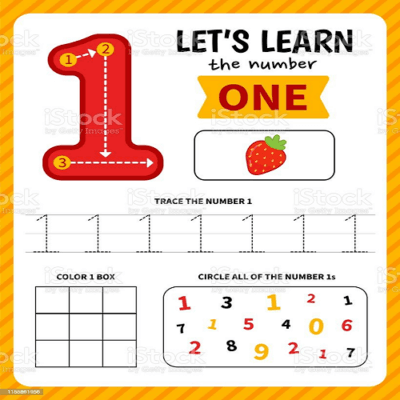Trendy Game-Based Math Learning Approaches for 1st Graders

In recent years, game-based learning has become an effective educational tool. It combines the fun and engaging elements of gaming with educational content to enhance learning experiences. When teaching math, incorporating approaches based on math games for a 1st grader can significantly impact their understanding and retention of mathematical concepts. This article will explore some trendy game-based math learning approaches for 1st graders.
Interactive Math Apps:
Interactive math apps are a fantastic way to introduce young learners to mathematical concepts enjoyably and engagingly. These apps often include colorful visuals, animations, and interactive activities that make learning math a fun experience. They cover various topics such as counting, number recognition, addition, subtraction, and shapes. By allowing children to practice these skills through interactive games and math quizzes for 1st graders, they develop a strong foundation in math while having a great time.
Gamified Online Platforms:
Gamified online platforms provide an immersive learning environment where children can explore math concepts through interactive games, challenges, and math quizzes. These platforms often feature captivating storylines and characters that motivate children to progress through different levels and earn rewards. 1st graders can improve their problem-solving and critical thinking abilities by completing math-related tasks and puzzles. The gamified approach keeps them engaged and encourages them to practice math consistently.
Physical Math Games:
While digital games have their merits, physical math games also play a crucial role in learning. These games include board games, card games, and manipulatives that allow children to interact with mathematical concepts physically. For example, games using number cards can help 1st graders understand the concept of quantity and number recognition. By involving their senses and providing hands-on experiences, physical math games reinforce understanding and make learning more tangible.
Augmented Reality (AR) Math:
Augmented Reality (AR) technology has revolutionized how math can be taught to young learners. AR math apps and tools overlay digital content onto the real world, creating an interactive and immersive learning experience. For 1st graders, AR math can be used to visualize and manipulate objects, numbers, and shapes. They can explore spatial relationships, solve puzzles, and discover patterns dynamically and interactively. AR math uniquely engages children, making abstract mathematical concepts more accessible and enjoyable.
Math-Based Educational Video Games:
Educational video games focused on math provide an interactive and entertaining way for 1st graders to learn and practice mathematical skills. These games often include challenges, puzzles, math quizzes, and quizzes that require players to apply math concepts to progress. Children can improve their numeracy skills, logical reasoning, and strategic thinking through gameplay. Additionally, many math-based educational video games offer adaptive learning features that adjust the difficulty level based on the child’s progress, ensuring an optimal learning experience.
Math Gamification in the Classroom:
Gamification techniques can also be incorporated into the classroom to make math lessons more engaging for 1st graders. Teachers can introduce rewards, badges, and leaderboards to create a sense of achievement and healthy competition. Group-based math games and activities can encourage student collaboration and teamwork. By integrating game-based elements into the curriculum, teachers can create a positive and enjoyable learning atmosphere that motivates 1st graders to participate and excel in math actively.
Conclusion
Game-based learning approaches have proven practical tools for teaching math to 1st graders. Interactive math apps, gamified online platforms, physical math games for a 1st grader, augmented reality math, math-based educational video games, and math gamification in the classroom are all trendy approaches that make learning math a fun and rewarding experience. By embracing these innovative methods, educators and parents can help 1st graders build a strong foundation in math while fostering a love for the subject.